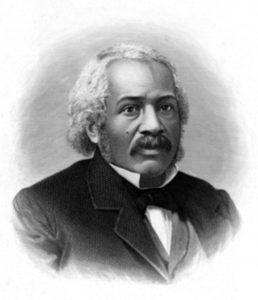pain
Pain Gene: Interesting, but Insufficient
How we experience pain is a result of both environmental and genetic features. The genetic factors are what we inherit.
Read More“First, Do No Harm” Doesn’t Mean “Avoid Opioid Therapy”
A mischaracterization of the phrase “First, do no harm” must not prevent providers from caring for people, or prevent policymakers from allowing physicians to treat their patients. That treatment must include providing patients with medication that can adequately provide pain relief with acceptable risk.
Read MoreHonoring Black Pioneers in Medicine
Only 5 percent of physicians in the United States are Black, despite the fact that the population includes more than double that number of African Americans. That needs to change.
Read MoreNew Podcast Discusses Current Issues Involving Pain and Politics
Dr. Ziegler is an advocate for people in pain. A Purdue University professor emeritus, Dr. Ziegler has also worked as a lawyer, police officer, detective, DEA agent, and humorist. I don’t know how he puts these experiences together, but I’m grateful that he is willing and able to leverage all of his skills and knowledge in a remarkable way to produce entertaining and informative podcasts.
Read MoreThree Minutes to Change the World
Those who follow my work on Linked In, in social media and in medical journals will be aware that I am a sharp critic of the U.S. Centers for Disease Control and Prevention (CDC) and its 2016 Guideline for Prescribing Opioids for Chronic Pain to adults with chronic non-cancer pain
Read MorePeaceful Protests and Prejudice
This article, in a slightly edited form, first appeared on Pain News Network on June 6, 2020. The Salt Lake Tribune recently published a story that distressed me. It said that Scott Senjo, a criminal justice associate professor at Weber State University in Utah, tweeted threats at those who were peacefully protesting the alleged murder…
Read MoreThe Victim of a Created Crisis — Left Behind
There have been just north of 68,000 overdose deaths in the United States in 2018. The largest new healthcare crisis in America.
Read MoreAlternatives to Conventional Opioids
My colleague, Richard Rauck, M.D., Pain Fellowship Director at the Wake Forest University of Medicine, and I presented a Continuing Medical Education (CME) symposium at the meeting on atypical opioid options. We discussed the strengths and weakness of three atypical opioids—tramadol, tapentadol, and buprenorphine—that clinicians may consider for the appropriate patients.
Read MoreA Veteran’s Story in His Own Words
Policymakers have changed the way patients who have chronic pain are treated. The 2016 CDC Guideline for Prescribing Opioids for Chronic Pain has had a domino effect on policies throughout the country. Unfortunately, veterans have been particularly affected. I have heard of many vets being told they no longer would be prescribed opioids or benzodiazepines.…
Read MoreThe 2019 Event with Major Impact for 100 Million Americans
Groundless accusations, media support of the accusations, and the enormous financial backing of a false narrative exploit the weaknesses of our civil and criminal systems.
Read More








